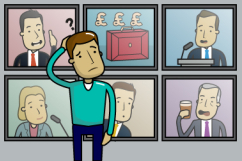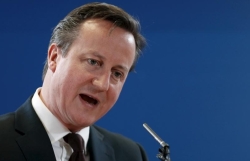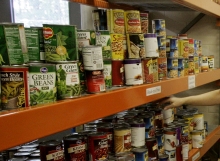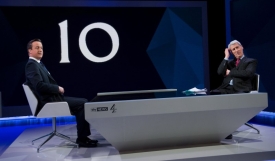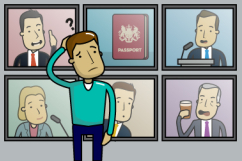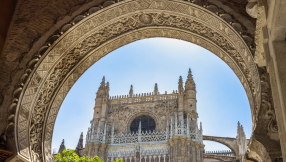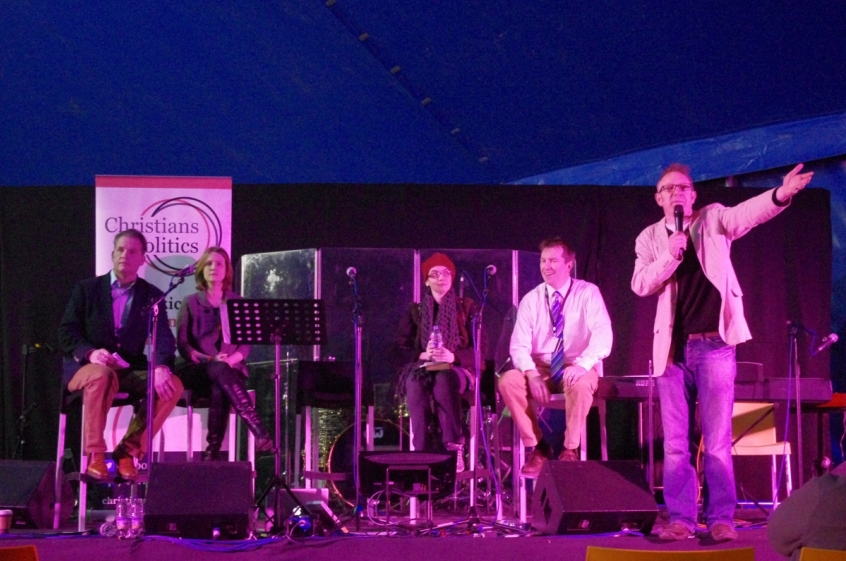
"This house believes that the 2015 general election will not make a significant difference to the crucial issues affecting our nation."
It is a melancholy thesis, proposed at Spring Harvest's Christians in Politics event last night in Minehead. Chaired by Andy Flannagan, worship leader and director of Christians on the Left, the debate saw SPEAK founder Louise Donkin and the leader of the Christian Party in Wales, Jeff Green, propose the motion. It was opposed by Conservative Christian Fellowship director Colin Bloom and by Liberal Democrat Christian Forum director Claire Mathys.
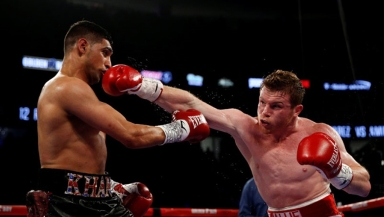
A straw poll at the beginning of the debate showed a pretty even split. Would the speakers succeed in swaying the audience's opinion? Conditions for intense engagement and hard thinking weren't particularly auspicious: the venue was a large tent, there was a howling gale outside, it was late and a bit cold.
There was plenty of warmth generated by the issues, though. Louise Donkin argued that power had shifted away from Westminster, and national governments generally, in the direction of unaccountable multi-national corporations. We don't really get a say in how banks work, even if we own them. The world has just got too complicated and trans-national organisations are beyond the control of national governments. Increasingly, individual political parties are unlikely to make a difference to the institutionalisation of selfish corporate practices.
Not so, argued Claire Mathys. It's all very well to stand on the margins and criticise, but we need to be involved in the parties that are actually making the decisions. There is a limit to the state and to what a government can achieve. However, she said: "I do believe that state can do a lot, and we believe that it should do as much as it can." The next election is really significant: we might leave the European Union, the UK might break up, there were huge decisions around welfare cuts and taxation.
A slightly more nuanced position from Christian Party representative Jeff Green, speaking for the motion. He wanted to be positive about politics, but felt quite negative about politicians: his party had gone through the list of 600-plus MPs and had identified only 23 who were Christians who voted according to their consciences. The rest were bullied and browbeaten by party bosses into toeing the party line. The Westminster election was not as significant as it should be because Britain was in the EU: "I don't see the need to be controlled by foreign powers, especially when it goes against the Queen's coronation oath," he said.
CCF director Colin Bloom gave a robust response. There are far more than 23 real Christians in parliament, and it's very rude to suggest otherwise. You have to be in government to govern. It's easy to throw rocks from the sidelines, but much harder to work within the system. Opting out is to abrogate our responsibities. He trumpeted the achievements of the Coalition government, giving generous credit to the Lib Dems: a record number of children no longer living in workless households, record numbers in employment, among other things. "People say that politics doesn't make any difference. Just look at last five years," he said.
Questions focused on benefits sanctions, equality and whether Westminster was really up to the job. Russell Brand, who encouraged people not to bother voting, was described by Colin Bloom as "a destructive clown who just wants publicity to sell his books". Louise Donkin said that we shouldn't assume that there's only one kind of democracy – this is the age of the internet, and we can give votes to the people on all kinds of things. The Westminister model is not the only one.
Claire Mathys made a really important point, and one which distinguishes the Christians in Politics enterprise from similar get-out-the-vote operations in the US: "This isn't just about getting Christians involved, it's about getting everyone involved. It's not just about a few good Christians getting into the dark world of politics and doing something, it needs to be much bigger than that."
So, what does this house believe? The vote was re-run with a very clear majority against the motion. We do believe the election can make a difference.
In the end, both of those speaking in favour of the motion appeared to share a common perception of where Christians ought to be viz a viz the political system, though they agreed on absolutely nothing else. The best place to be is outside as lobbyists, demonstrators or prophets, or if we're inside, it should be as morally unimpeachable guardians of the truth. This is where many Christians feel most comfortable. But the real work of politics always involves collaboration and compromise, as the audience realised. The fact that you can't get everything you want doesn't mean that you can't get anything.










